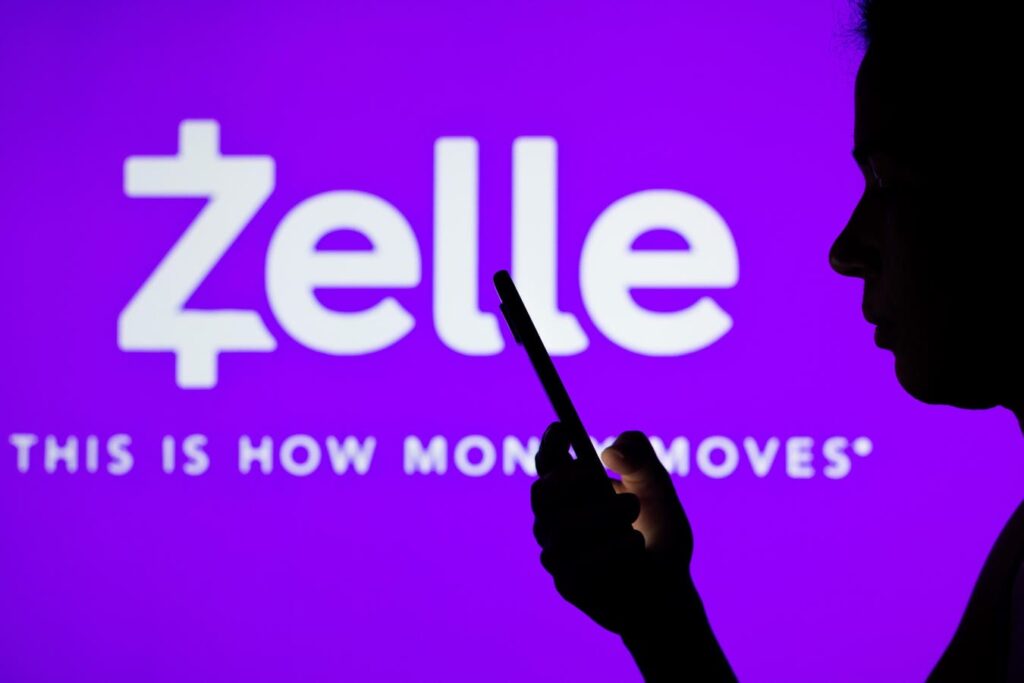Bank customers used Zelle to transfer $806 billion in 2.9 billion payments last year, up 28% in both dollar value and transaction volume from 2022, as use of the payment app by small businesses spread.
Zelle was launched by the big banks in 2017 to compete with peer-to-peer payment services such as PayPal’s
PYPL
Venmo and Block’s CashApp and now allow payments between 2,100 banks and credit unions covering more than 80% of U.S. deposit accounts. It is operated by Early Warning Services, a fintech co-owned by JPMorgan Chase
JPM
(the nation’s largest bank), Bank of America
BAC
, Capital One
COF
, PNC Bank, Truist, U.S. Bank and Wells Fargo
WFC
. Early Warning Services charges its thousands of financial institution partners a small fee for each Zelle transaction. In 2023 there were nearly 3 billion Zelle transactions.
Cam Fowler, who became Early Warning’s CEO in October 2023, says Zelle is on track to reach an annual run rate of $1 trillion in transactions by late 2024 or early 2025. Zelle’s 2023 volume was nearly three times that of Venmo’s. (Block does not disclose CashApp’s volume.)
While Zelle is still used primarily for individual to individual payments (e.g. splitting rent or sending money to a child at college), its fastest growing application is for small business transactions. That reflects a strategic push, says Fowler. “We’re focused on moving the 11 billion checks written in the United States and hundreds of billions of dollars used to settle bills for small businesses to Zelle.”
In 2023, small businesses, ranging from landlords to housekeepers and landscapers, received 217 million payments amounting to $101 billion, up 44% in transaction volume and 39% in dollar volume from the year before. Meanwhile, small businesses used Zelle 179 million times to pay others $113 billion, up 34% in transaction volume and 29% in dollar volume from 2022.
Unlike Venmo and CashApp, which store balances on their branded digital wallets, Zelle enables bank account to bank account transfers and is integrated into existing bank apps—meaning a business doesn’t have to worry about an extra step to send or receive money or about keeping tight funds in an extra account. In addition, while the majority of banks don’t charge businesses a fee to use Zelle, Venmo charges merchants a fee of 1.9% of transaction value, plus 10 cents per transaction.
Even as Zelle has become a facet of many people’s daily financial lives, its growth has been marred by concerns surrounding fraud and scams on the platform. The ability to send money instantly between bank accounts increases efficiency, but it can also be an opening for bad actors. Early Warning Services emphasizes that fraudulent and scam transactions make up less than one-tenth of 1% of total transactions sent over the network, however when annual transaction volume is $806 billion that still means as much as $806 million goes missing each year due to fraud or scams.
The Electronic Fund Transfer Act (as implemented by the Federal Reserve through regulation E) does not require banks to refund customers any payments those customers actually authorized—even if they were tricked into authorizing the payment by a scammer. As technologies like generative AI make scam pitches easier to create–and harder to spot–that risk is growing. (If a criminal hacks your account, and makes fraudulent transfers, the bank, and not the consumer, is on the hook.)
Under pressure from lawmakers, including Senator Elizabeth Warren (D-Mass.), Early Warning Services announced at the end of 2023 that it would require partner banks to reimburse customers for select imposter scams. The reimbursement policy will typically come into play when a con artist poses as a bank representative or advisor, says Early Warning Services’ Fowler.
“This goes beyond what the rule of law necessarily says needs to be done,” Fowler says. “This is us trying to move along the continuum to just make the platform safer for people. There is a point at which the conversation needs to move beyond reimbursement and stay incredibly focused on education, public policy and law enforcement, and we try to balance our energy across all of those categories.”
In addition to the reimbursement policy, Early Warning Services has introduced prompts into its money transfer process to encourage users to think twice before transferring funds. When a user goes to send money to a new recipient, they are warned to never pay for products they haven’t seen in person, only pay people they know and be wary of anyone introducing a sense of urgency to induce you to send them money, a common scam tactic.
Read the full article here


